In the series Politics, History, and Social Change, edited by John C. Torpey
Daniel Levy and Natan Sznaider, translated by Assenka Oksiloff, The Holocaust and Memory in the Global Age
Brian A. Weiner, Sins of the Parents: The Politics of National Apologies in the United States
Heribert Adam and Kogila Moodley, Seeking Mandela: Peacemaking Between Israelis and Palestinians
Marc Garcelon, Revolutionary Passage: From Soviet to Post-Soviet Russia, 1985-2000
Gotz Aly and Karl Heinz Roth, translated by Assenka Oksiloff, The Nazi Census: Identification and Control in the Third Reich
Michael R. Marrus, The Unwanted: European Refugees from the First World War Through the Cold War






Contents
Vii
I
II Ethnicity, Culture, and Black Nationalist Politics
III Feminism, Nationalism, and African American Women
Acknowledgments
 ecause this project consists of a series of essays that were written and published over a period of some years, the list of people who contributed is long. Many have been acknowledged elsewhere, so here I wish to recognize those who supported the final stages of this project.
ecause this project consists of a series of essays that were written and published over a period of some years, the list of people who contributed is long. Many have been acknowledged elsewhere, so here I wish to recognize those who supported the final stages of this project.
I thank Vallarie Henderson, Tamika Odum, and Julie Hilvers, three graduate students in sociology at the University of Cincinnati who served as graduate research assistants for various parts of this project. Their professionalism, diligence, and great ideas made a significant difference.
The University of Cincinnati helped defray costs associated with this manuscript. The support provided by the Taft Fund within the McMicken College of Arts and Sciences for costs associated with manuscript preparation has been invaluable. I also thank Provost Anthony Perzigian for his tireless support of my scholarship during lean financial times. I also appreciate the support of Karen Gould, dean of the College of Arts and Sciences, and members of her administrative team. Josephine Wynne, the administrative secretary in African American studies for the duration of this project, also provided important support.
This project would not have come to fruition without the support of the team at Temple University Press. Micah Kleit, my editor, has been with me through this entire project. I am also grateful to the entire editorial team who worked on the manuscript, with special thanks to Jennifer French and Gary Kramer for their contributions during the production process. Expert copyediting was done by Susan Deeks.
Finally, I thank my family for their continued backing. My spouse, Roger; my daughter, Valerie; and my father, Albert Hill, have been among my strongest and most consistent supporters.
Introduction
From Black Power to Hip Hop
My life was totally consumed by all aspects of gang life.... My clothes, walk, talk, and attitude all reflected my love for and allegiance to my set. Nobody was more important than my homeboys nobody....I was six years old when the Crips were started. No one anticipated its sweep. The youth of South Central were being gobbled up by an alien power threatening to attach itself to a multitude of other problems already plaguing them. An almost "enemy" subculture had arisen, and no one knew from where it came. No one took its conceptions seriously. But slowly it crept, saturating entire households, city blocks, neighborhoods, and eventually the nation-state of California.
-Sanyika Shakur, AKA "Monster" Kody Scott
Many in hip-hop are simply carefully navigating the waters of their sexuality. These guys I refer to as homiesexual are, clinically speaking, homosexual. But they very much take on a machismo that separates them from associations with words like gay, queer, and most especially fag. I would guess that this has a lot to do with safety, and with a culture that hates you because you're a fag and most definitely hates you because you're black.
-Village Voice
My father got at least twenty years of good high living out of the [drug] business .... That's power. To be able to set up your own empire in your neighborhood, or even somebody else's neighborhood for that matter. To buy cars, Jeeps, trucks. To sport the flyest shit made by top designers everyday .... To be able to shit on people before they get a chance to shit on you. That's power. Who could argue with that A regular nigga worked all week for change to get to work plus a beer to forget about how hard he work.... Let's compare it, ten years of good living and twenty years of high living versus sixty years of scraping to get by. Enough said.
-Winter Santiaga, fictional character
I don't act the way society dictates that a woman "should." I am not dainty. I do not hold back my opinions. I don't stay behind a man. But I'm not here to live by somebody else's standards. I'm defining what a woman is for myself. Simply put, I am not interested in subscribing to what society has decided for half of humankind. I am an individual.
Queen Latifah
 ang member Sanyika Shakur and rap star Queen Latifah refuse to "live by somebody else's standards," yet the standards they choose seem diametrically opposed to one another. How should we understand young African American men whose loyalties to their gang surpass their commitment to their families? How will they get along with women who refuse to be "dainty" and who define "what a woman is" for themselves? What are we to make of young gay men who craft "homie-sexual" identities within the hypermasculine trappings of some elements of hip-hop culture, yet eschew self-definitions as "queer" or "fag"? Winter Santiaga, the protagonist in rapper Sister Souljah's novel The Coldest Winter Ever, bluntly embraces a materialism that seems at odds with traditions of the Black freedom struggle: "To be able to shit on people before they get a chance to shit on you. That's power." Santiaga's philosophy seemingly contradicts an ethos of Black solidarity that takes ironic forms in Shakur's words, "nobody was more important than my homeboys-nobody."
ang member Sanyika Shakur and rap star Queen Latifah refuse to "live by somebody else's standards," yet the standards they choose seem diametrically opposed to one another. How should we understand young African American men whose loyalties to their gang surpass their commitment to their families? How will they get along with women who refuse to be "dainty" and who define "what a woman is" for themselves? What are we to make of young gay men who craft "homie-sexual" identities within the hypermasculine trappings of some elements of hip-hop culture, yet eschew self-definitions as "queer" or "fag"? Winter Santiaga, the protagonist in rapper Sister Souljah's novel The Coldest Winter Ever, bluntly embraces a materialism that seems at odds with traditions of the Black freedom struggle: "To be able to shit on people before they get a chance to shit on you. That's power." Santiaga's philosophy seemingly contradicts an ethos of Black solidarity that takes ironic forms in Shakur's words, "nobody was more important than my homeboys-nobody."

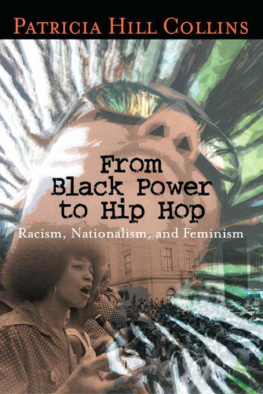
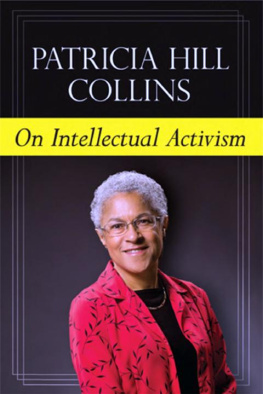


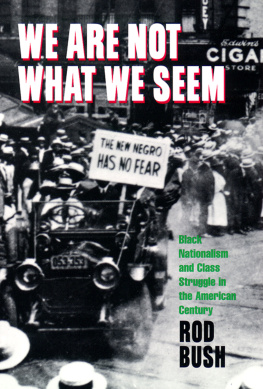
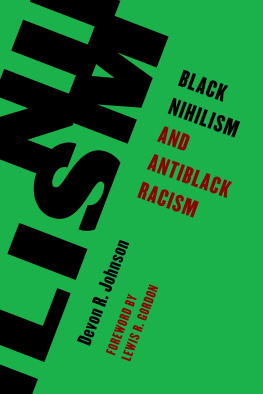
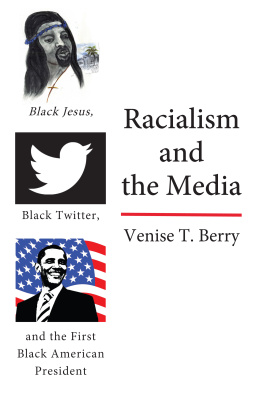
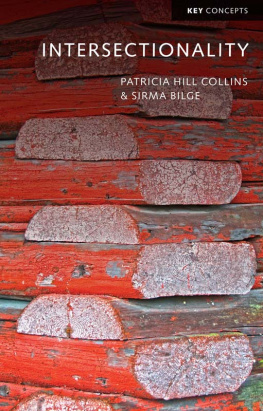
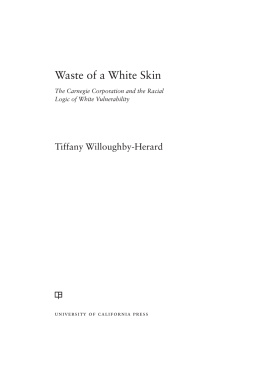





 ecause this project consists of a series of essays that were written and published over a period of some years, the list of people who contributed is long. Many have been acknowledged elsewhere, so here I wish to recognize those who supported the final stages of this project.
ecause this project consists of a series of essays that were written and published over a period of some years, the list of people who contributed is long. Many have been acknowledged elsewhere, so here I wish to recognize those who supported the final stages of this project. ang member Sanyika Shakur and rap star Queen Latifah refuse to "live by somebody else's standards," yet the standards they choose seem diametrically opposed to one another. How should we understand young African American men whose loyalties to their gang surpass their commitment to their families? How will they get along with women who refuse to be "dainty" and who define "what a woman is" for themselves? What are we to make of young gay men who craft "homie-sexual" identities within the hypermasculine trappings of some elements of hip-hop culture, yet eschew self-definitions as "queer" or "fag"? Winter Santiaga, the protagonist in rapper Sister Souljah's novel The Coldest Winter Ever, bluntly embraces a materialism that seems at odds with traditions of the Black freedom struggle: "To be able to shit on people before they get a chance to shit on you. That's power." Santiaga's philosophy seemingly contradicts an ethos of Black solidarity that takes ironic forms in Shakur's words, "nobody was more important than my homeboys-nobody."
ang member Sanyika Shakur and rap star Queen Latifah refuse to "live by somebody else's standards," yet the standards they choose seem diametrically opposed to one another. How should we understand young African American men whose loyalties to their gang surpass their commitment to their families? How will they get along with women who refuse to be "dainty" and who define "what a woman is" for themselves? What are we to make of young gay men who craft "homie-sexual" identities within the hypermasculine trappings of some elements of hip-hop culture, yet eschew self-definitions as "queer" or "fag"? Winter Santiaga, the protagonist in rapper Sister Souljah's novel The Coldest Winter Ever, bluntly embraces a materialism that seems at odds with traditions of the Black freedom struggle: "To be able to shit on people before they get a chance to shit on you. That's power." Santiaga's philosophy seemingly contradicts an ethos of Black solidarity that takes ironic forms in Shakur's words, "nobody was more important than my homeboys-nobody."